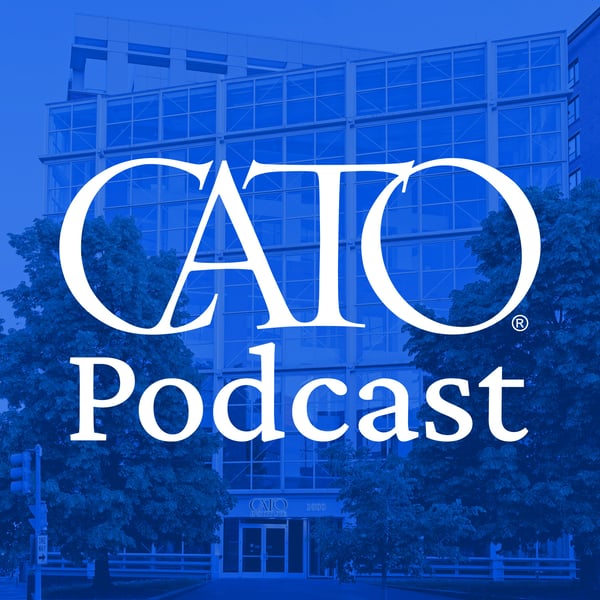Best of Cato Daily Podcast: Taking Back Congressional Power over Tariffs and Trade
Cato Podcast
Cato Institute
4.6 • 949 Ratings
🗓️ 29 April 2025
⏱️ 24 minutes
🧾️ Download transcript
Summary
Caleb O. Brown hosted the Cato Daily Podcast for nearly 18 years, producing well over 4000 episodes. He has gone on to head Kentucky’s Bluegrass Institute. This is one among the best episodes produced in his tenure, selected by the host and listeners.
The freedom to trade is morally good. Congress has sadly delegated many of its powers over trade to the White House. That poses particular risks today. Senator Rand Paul (R‑KY) discusses his efforts at reclaiming legislative power over trade.
Hosted on Acast. See acast.com/privacy for more information.
Transcript
Click on a timestamp to play from that location
| 0:00.0 | This is longtime Cato Daily podcast host, Caleb Brown. |
| 0:02.9 | I've moved on to head the Kentucky's Bluegrass Institute, |
| 0:06.0 | but I wanted to leave listeners with some favorite episodes over the last nearly 18 years of my hosting tenure. |
| 0:13.3 | I tried to pick episodes that are relevant to our current moment. |
| 0:16.8 | Thank you for listening. |
| 0:22.5 | This is the Cato Daily podcast for Friday, October 18, 2024, and Caleb Brown. |
| 0:27.7 | On the matter of trade policy, Congress has, for many decades, delegated large swaths of power of trade negotiation and notably trade restrictions to the White House. That worries Rand |
| 0:39.3 | Paul, Republican U.S. Senator from Kentucky. He says the case for free trade is overwhelming, |
| 0:44.7 | and Congress should do its job in that area. And he'd like to claw back some authority over |
| 0:49.6 | trade from future presidents. One of the areas where I think in some ways foolishly, Congress has |
| 0:59.7 | delegated away its own authority has been trade. Prior to the presidency of Donald Trump, |
| 1:06.2 | what were the consequences of that? You know, a couple things. I think for the most part, over a several |
| 1:12.4 | decade period, Congress gave a lot of the power to the executive branch, but with the intention |
| 1:18.3 | that trade deals wouldn't get hung up in the legislative branch, that actually trade deals |
| 1:23.0 | would move forward. And I would say the history from World War II on is mostly of enhanced international |
| 1:29.6 | trade. I would say that's the general trend. And the general trend was the legislature to give |
| 1:34.7 | more and more of this to the executives, but the executives tended to be in favor of international |
| 1:39.2 | trade. It also came with some potential bureaucratic problems in the sense that since Congress wasn't |
| 1:48.8 | fine-tuning these trade deals and the executive branch was writing them, large bureaucracies |
| 1:53.9 | were developing, large international bureaucracies. |
| 1:57.2 | And so sometimes the trade deals became a trade-off in the sense that there were lowered tariffs, which was good for international trade, good for the U.S., but there was an enhanced bureaucracy which sometimes had additional labor rules, additional EPA rules, additional other things that were bureaucratic that sometimes made it more managed trade than free trade. But by |
| 2:19.5 | and large, the trend over the last several decades has been towards more trade, and that's been |
... |
Please login to see the full transcript.
Disclaimer: The podcast and artwork embedded on this page are from Cato Institute, and are the property of its owner and not affiliated with or endorsed by Tapesearch.
Generated transcripts are the property of Cato Institute and are distributed freely under the Fair Use doctrine. Transcripts generated by Tapesearch are not guaranteed to be accurate.
Copyright © Tapesearch 2025.

